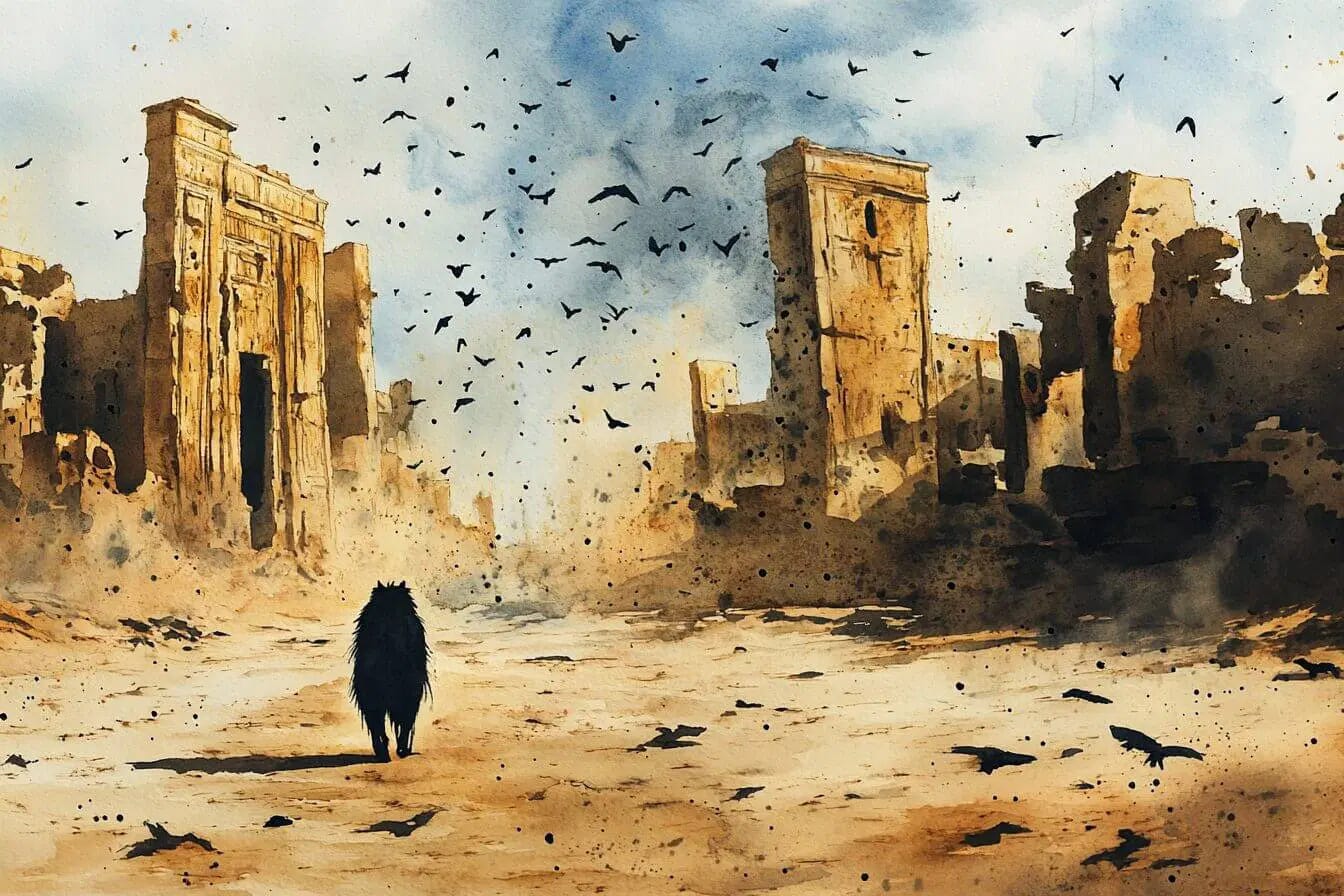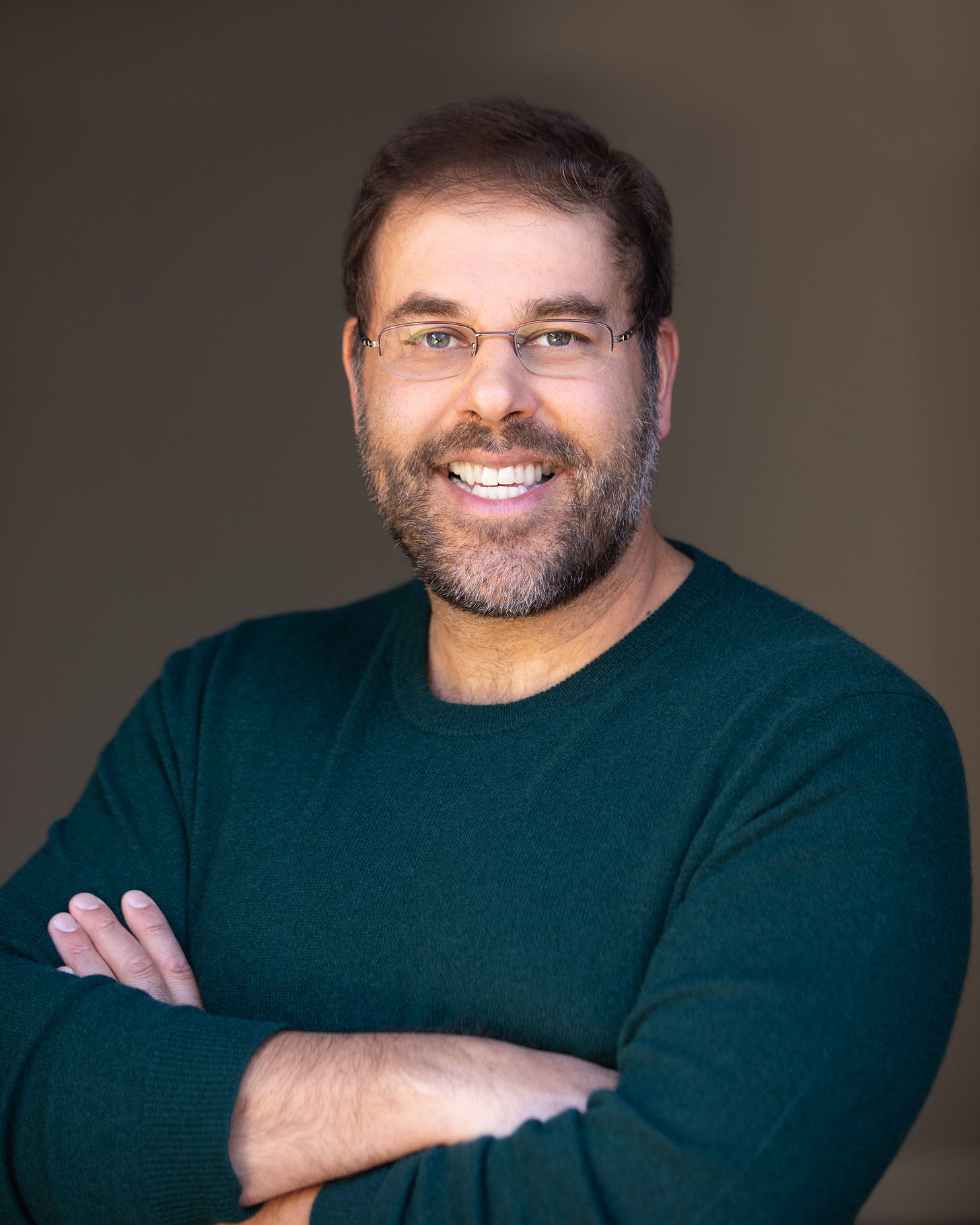The Center Cannot Hold: What Should We Do?
In an age of extremism and instability, William Butler Yeats reminds us: the center must be rebuilt, not abandoned. Our future depends on conviction, creativity, and courage.
By Jeremi Suri
The events of the last week make it clear that the basic elements of “normal” – safety for public figures, protections for free speech, and the pursuit of unity, especially in tragedy – no longer define our society. Everything is up for grabs. Lives, jobs, science, and justice seem to shift dramatically before our eyes. And the shifts are inconsistent, arbitrary, and unprincipled.
Our current world lacks stability and predictability. Many friends tell me they do not know what to do or how to stay safe. It is a replay of COVID. A new scourge is spreading across all parts of our country. Frightened citizens want to stay home and keep their heads under the covers. That is a very rational response to what we might call our plague of extremism.
My sad reflections on this terrible moment led me to poetry. Poets have a special skill for putting our feelings into words and helping us make sense of the chaos around us. For our current moment, I recommend the first stanza of William Butler Yeats’ “The Second Coming.” Please read it slowly and aloud:
Turning and turning in the widening gyre
The falcon cannot hear the falconer;
Things fall apart; the center cannot hold;
Mere anarchy is loosed upon the world,
The blood-dimmed tide is loosed, and everywhere
The ceremony of innocence is drowned;
The best lack all conviction, while the worst
Are full of passionate intensity.
Writing in the aftermath of the First World War, Yeats anticipates our moment one hundred years later. Our country is spiraling in a “widening gyre.” The tide of blood is rising, and old faiths in democracy and freedom feel terribly out of date. The loss of innocence for Yeats unleashes anarchy and destroys the work of prior generations (“things fall apart”). The “center cannot hold” because it is pulled violently in too many directions.
Those who cling to shared principles find themselves standing on a narrow, precarious bridge between warring extremes. Principled people give up to save themselves. The committed extremists shout everyone else down. Those are the most chilling lines in the poem: “The best lack all conviction, while the worst are full of passionate intensity.”
That is how I feel right now. As a historian, I hear numerous echoes from Yeats’ time when powerful, wealthy countries were traumatized by costly foreign wars, widespread disease, economic dislocation, massive immigration, and new technologies for spreading hate. The old “centers” of Victorian stability had vanished. The same is true for our old “centers” of democracy. The fanatics – the radicals of Yeats’ time and our own – have become the drivers of society, seizing institutions and bullying anyone who stands in their way.
Yeats’ poem makes it clear that there is no going back. We cannot reverse history. We are where we are. We must understand what is happening all around us.
Yeats offers no simple pathway forward. The second stanza of his poem is about a “revelation,” a “Second Coming” after “twenty centuries of stony sleep.” Yeats anticipated a “rough beast,” “a shape with lion body and the head of man.” I immediately thought of some Artificial Intelligence robot, arriving to replace our failing humanity.
But then I recognized the hope in the poem. The “Second Coming” is not purely dystopian. Yeats closes his poem with a question about what exactly will be born. We must recognize the anarchy, but we do not have to accept it. We can build a new center.
Yeats’ early twentieth-century readers endured two more decades of widespread suffering, but they also recreated their societies in more open, inclusive, humane, and prosperous ways. Yeats’ readers, particularly in the United States, imagined government that provided basic assistance to down-and-out citizens – the New Deal. Yeats’ readers pushed for new forms of international cooperation that led to the creation of the League of Nations and then the United Nations. Yeats’ readers also rejected colonialism and began a long process of making their societies more open to people of different races, religions, and ethnicities. There was devastating resistance to these reforms, in Yeats’ time and our own, but millions of people continued to push against the “rough beasts” all around them.
We must do the same. It will not be easy. Rough beasts are multiplying, and they are becoming more ferocious. Our destiny, however, is still in our own hands. Society needs a new center. This starts with supporting organizations that continue to do good work. It also means educating people to understand why the extremes of our time are so destructive. Most of all, our future depends on new, creative ideas. The center cannot just be a rejection of anarchy. It must offer something more. It must provide hope to the millions of citizens who are hurt and afraid and desire something better.
Yeats wanted a “Second Coming” of hope, and he tried to shake his readers into building it. The best cannot “lack all conviction, while the worst are full of passionate intensity.” Those who want to fix our country must not disengage; they must not hide under the covers.
Despite our fears, we must renew our conviction to build a center of hope and achievement for all citizens. The extremists only destroy; the believers build. Anarchy cannot last when a better order is in the making.
Also see in:
German, Turkish, Chinese, Spanish
Jeremi Suri holds the Mack Brown Distinguished Chair for Leadership in Global Affairs at the University of Texas at Austin. He is a professor in the University's Department of History and the LBJ School of Public Affairs. Professor Suri is the author and editor of eleven books on politics and foreign policy, most recently: Civil War By Other Means: America’s Long and Unfinished Fight for Democracy. His other books include: The Impossible Presidency: The Rise and Fall of America’s Highest Office; Liberty’s Surest Guardian: American Nation-Building from the Founders to Obama; Henry Kissinger and the American Century; and Power and Protest: Global Revolution and the Rise of Détente. His writings appear in the New York Times, Washington Post, Wall Street Journal, CNN.com, Atlantic, Newsweek, Time, Wired, Foreign Affairs, Foreign Policy, and other media. Professor Suri is a popular public lecturer and comments frequently on radio and television news. His writing and teaching have received numerous prizes, including the President’s Associates Teaching Excellence Award from the University of Texas and the Pro Bene Meritis Award for Contributions to the Liberal Arts. Professor Suri hosts a weekly podcast, “This is Democracy.”





Even though it's bad, there's something comforting about another who's seeing the same thing you're seeing, and describing it well. And referencing another who did the same 100 years ago. I'd like it to not be this way, but this is how it is.
Johnson speaks of passive oppression and defines it as “making it possible for oppression to happen simply by doing nothing to stop it”